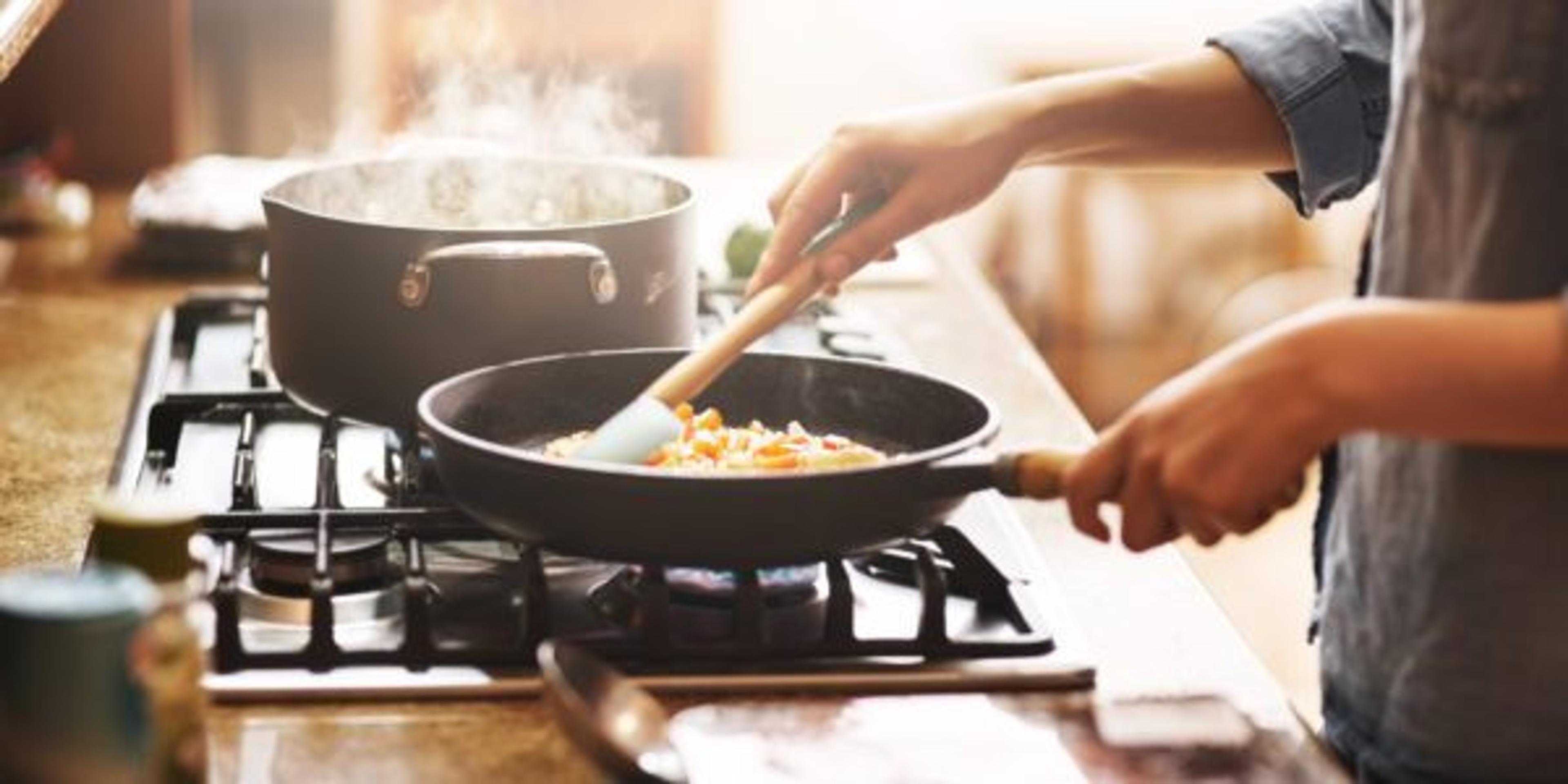Are You Using Your Non-Stick Cookware Safely?
Amy Barczy
| 3 min read

Pots and pans made with a non-stick coating are the standard option for most American households – but recent research has raised concerns about the safety of their use over time.
That’s because that non-stick coating that makes it easier to clean pots and pans can break down and wear off with continued use. And, under certain conditions, it could be harmful to your health.
Here’s a look at how to use non-stick cookware safely – based on the latest research – as well as other options you may want to consider if you’re concerned about exposure.
What is a non-stick pan?
Typically, when people refer to a non-stick pan, they’re referring to a pan made with the coating Teflon. Teflon is a brand that uses a clear plastic coating on metal pots and pans. The result is an easy-to-clean pan – but it’s the plastic coating that poses the issue.
Researchers have been studying whether this coating is safe for cooking. When used properly, experts say Teflon pans are safe and non-toxic.
The issue with Teflon pans is when they are overheated: studies have shown when a Teflon pan gets too hot, the plastic coating begins to break down and release toxic gases. Of particular concern is the chemical perfluorooctanoic acid (PFOA), which is connected to cancer and thyroid disease if exposure occurs over a long period of time.
Teflon is still used to manufacture pots and pans; though the use of the chemical PFOA was voluntarily phased out in the U.S. It’s possible that nonstick cookware made in other countries could contain PFOA.
Caring for non-stick pans
Non-stick pans can be used safely by following best practices for use. Here are some tips to start:
- Use cooking utensils made of plastic or silicone to keep from scratching the coating
- Only cook using low to medium heat. High heat could cause certain coatings to give off chemical fumes.
- Don’t put pots and pans in the dishwasher. Abrasive detergents could damage the coating.
Keep in mind the life span for most pots and pans is five years. If your cookware begins to break down, appear warped, scratched or discolored, it may be time to invest in new equipment.
Alternatives to non-stick pans
When you’re shopping for new pots and pans, there are a variety of products on the market today. Not only are today’s non-stick pots and pans made without Teflon, there are other options beyond nonstick pans. Here are some of the most common alternatives:
- Anodized aluminum cookware: This coating protects against corrosion and scratches.
- Ceramic cookware: Modern ceramic coatings provide non-stick, non-toxic alternatives.
- Cast iron skillets: While heavier than most pots and pans, cast iron cookware can enrich food with iron. Proper care is important to keep cast iron in good condition.
More from AHealthierMichigan:
Photo credit: Getty Images





